Propane Safety During A Hurricane
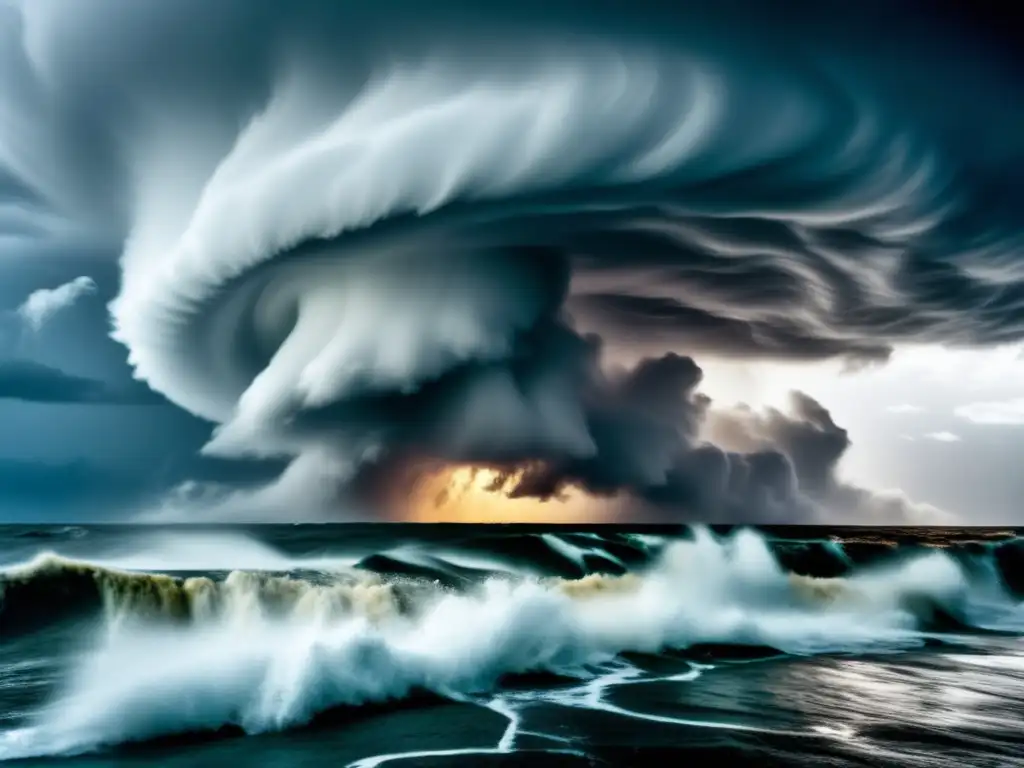
Propane Safety During a Hurricane: What You Need to Know
Introduction
As hurricane season approaches, it’s important to be prepared for all potential hazards that may arise during a storm. One of these hazards is the use and storage of propane gas. Propane is commonly used for cooking, heating, and powering generators during power outages, but it can also pose a serious safety risk if not handled properly. In this article, we’ll discuss everything you need to know about propane safety during a hurricane.
Proper Propane Storage
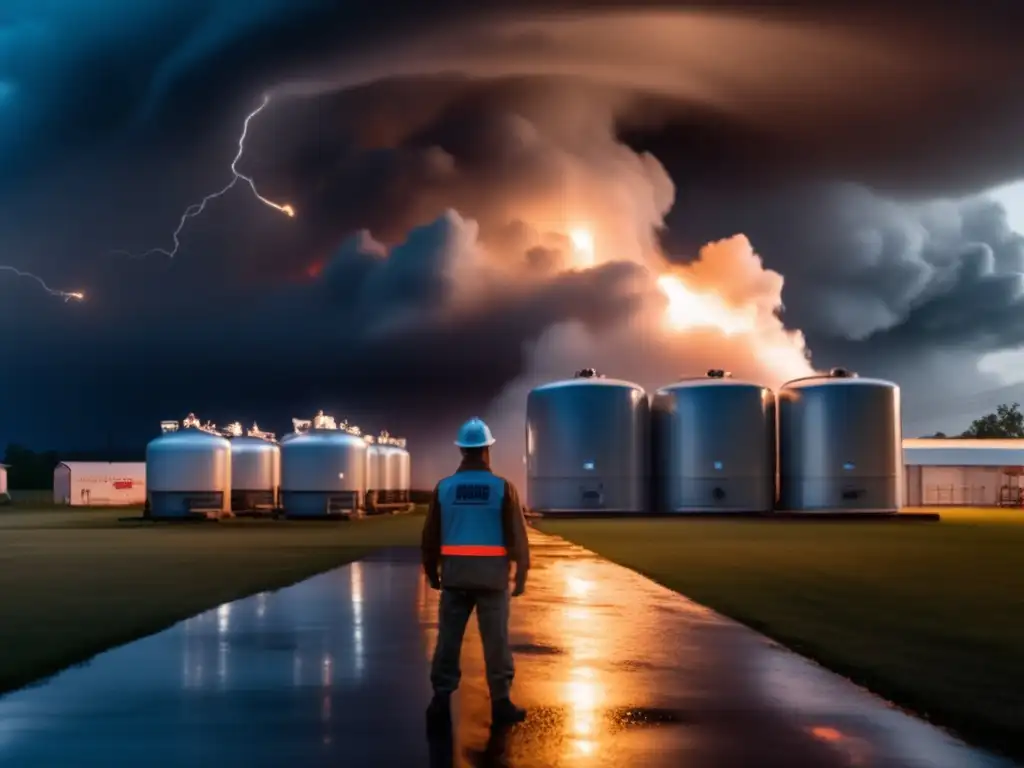
Propane Tanks
One of the most important aspects of propane safety is proper storage of propane tanks. Before a hurricane hits, make sure all propane tanks are secured and anchored to prevent them from being knocked over or swept away by strong winds. If possible, store your propane tanks in a cool, dry, well-ventilated area away from outdoor elements. Never store propane tanks indoors, as the gas is highly flammable and can ignite or explode if exposed to heat sources like stoves, water heaters, or furnaces.
It’s also important to regularly inspect your propane tanks for leaks or damage. If you smell gas or suspect a leak, turn off the gas supply immediately and contact a propane professional for assistance.
Propane Generators
Propane generators can be a lifesaver during a power outage caused by a hurricane, but they can also be dangerous if not used correctly. To ensure safe use, follow these guidelines:
- Never use a propane generator indoors, including in garages, sheds, or basements. Generators produce carbon monoxide gas which can be deadly if inhaled.
- Place the generator on a level surface away from flammable materials like dry grass or leaves.
- Make sure the generator is properly grounded to prevent electrical shock.
- Use the generator only as directed by the manufacturer and never modify it or its parts.
What to Do in Case of a Propane Leak
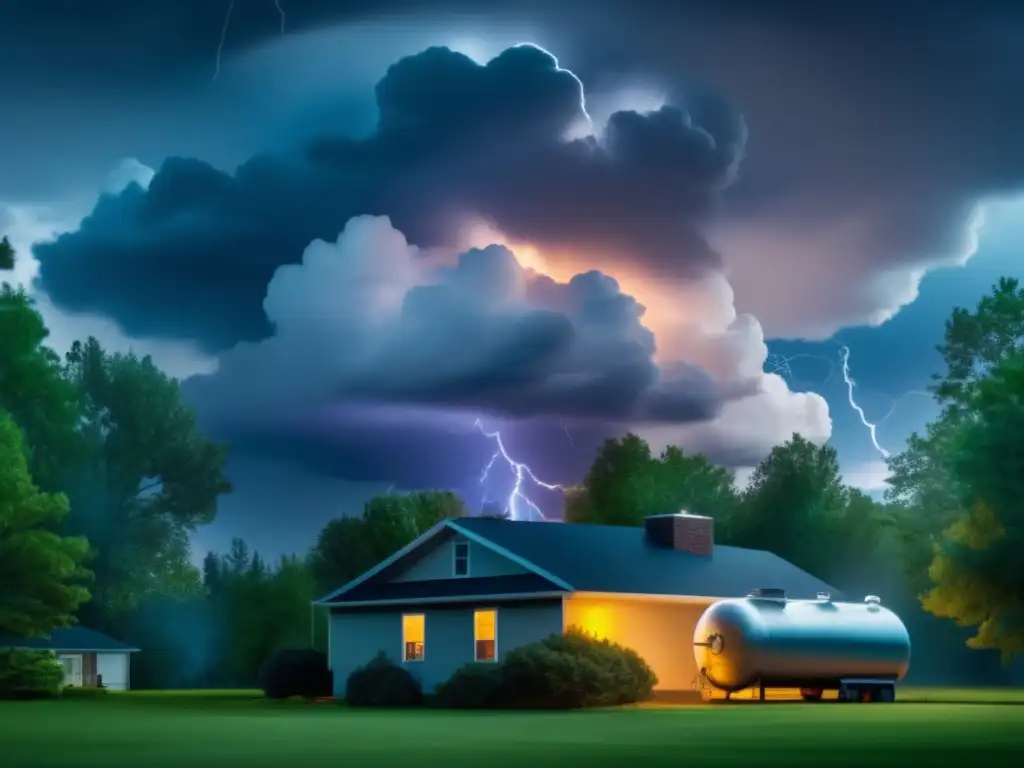
Evacuate the Area
If you smell gas or suspect a propane leak, evacuate the area immediately and call 911 or your local fire department. Do not attempt to fix the leak or turn off the gas supply yourself, as this can be extremely dangerous and even fatal.
Turn Off the Gas Supply
If it’s safe to do so, turn off the gas supply valve by rotating it clockwise until it’s tight. Do not try to turn on any lights, appliances, or electrical switches as these can create sparks that can ignite the gas. Also, avoid using cell phones or any other electrical devices in the vicinity of the leak, as they too can generate sparks.
Wait for Professional Assistance
Once you’ve evacuated the area and turned off the gas supply, wait for a qualified propane professional to arrive and inspect the tank and connections. Do not return to the area until it’s been deemed safe to do so.
Propane Safety After a Hurricane
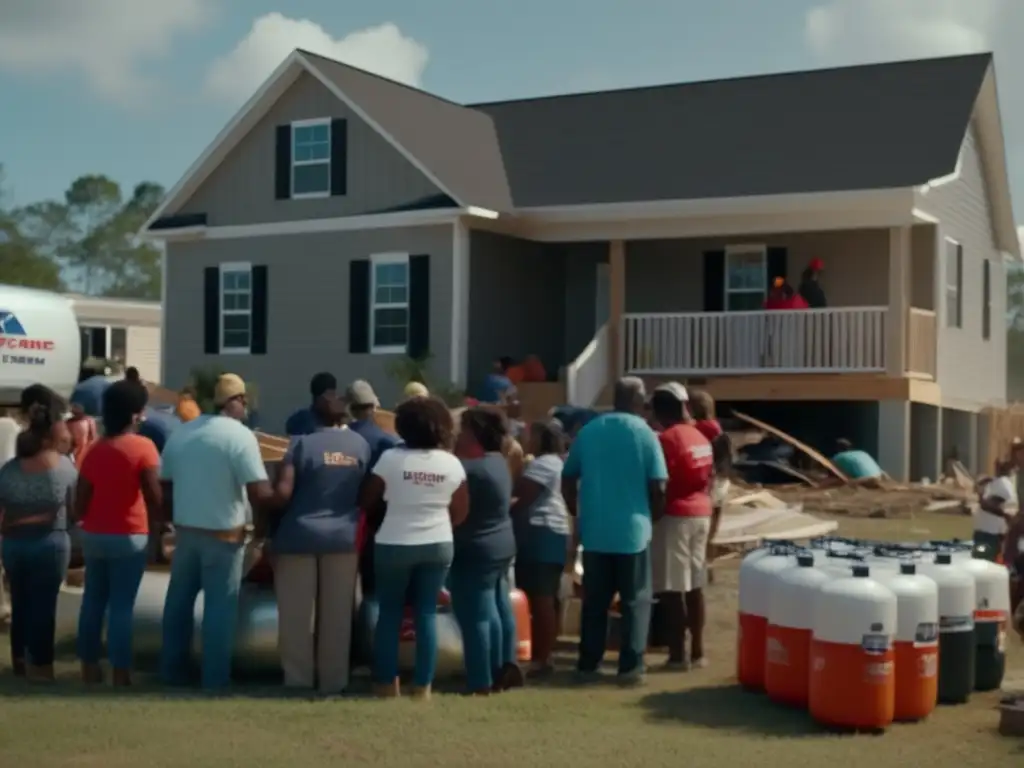
Inspection
After a hurricane, it’s important to inspect all propane tanks and equipment for damage or leaks before using them again. If you suspect any damage or leaks, contact a propane professional for assistance.
Testing Appliances
If you’ve had to turn off your propane supply during the hurricane, it’s important to test all appliances that use propane, such as stoves and furnaces, before using them again. This will ensure they’re working properly and not leaking gas. If you smell gas or suspect a leak, follow the steps outlined above.
Clean Up
After a hurricane, propane tanks and equipment may be covered in debris or submerged in water. Clean up any debris around propane tanks and make sure they’re free from damage or leaks. Tanks that have been submerged in water should be inspected by a propane professional before being used again.
Frequently Asked Questions
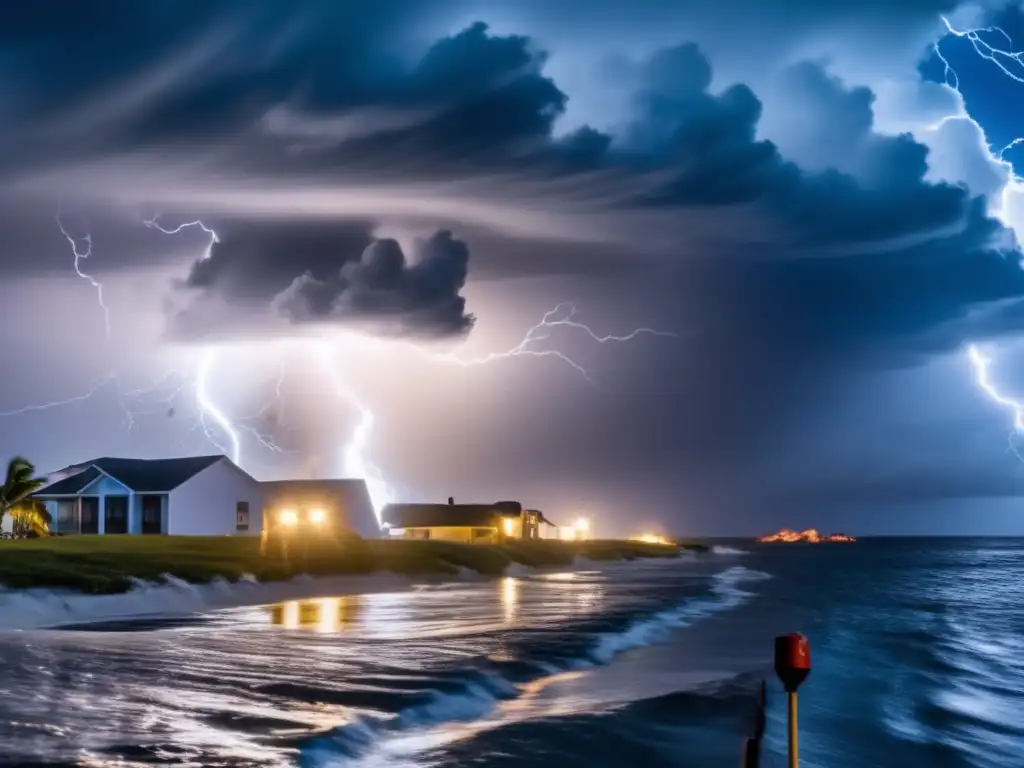
-
Is it safe to store propane tanks indoors during a hurricane?
No, it’s never safe to store propane tanks indoors as the gas is highly flammable and can ignite or explode if exposed to heat sources like stoves, water heaters, or furnaces.
-
What should I do if I smell gas or suspect a propane leak during a hurricane?
If you smell gas or suspect a propane leak, evacuate the area immediately and call 911 or your local fire department. Do not attempt to fix the leak or turn off the gas supply yourself.
-
Can I use a propane generator indoors?
No, you should never use a propane generator indoors, including in garages, sheds, or basements. Generators produce carbon monoxide gas which can be deadly if inhaled.
-
How do I test my propane appliances after a hurricane?
Before using propane appliances after a hurricane, test them by turning them on and checking for leaks or other damage. If you smell gas or suspect a leak, follow the steps outlined above.
-
Should I attempt to fix a propane leak myself?
No, you should never attempt to fix a propane leak yourself. Evacuate the area immediately and call 911 or your local fire department for assistance.
Conclusion
Propane can be a valuable resource during a hurricane, but it’s important to handle it with care and respect. By following these simple guidelines for proper propane storage, dealing with leaks, and post-hurricane clean-up, you can help ensure the safety of yourself and your loved ones. Remember, if you ever suspect a propane leak or need assistance with any propane-related issues, always contact a qualified professional.
Stay safe this hurricane season!
Additional Resources
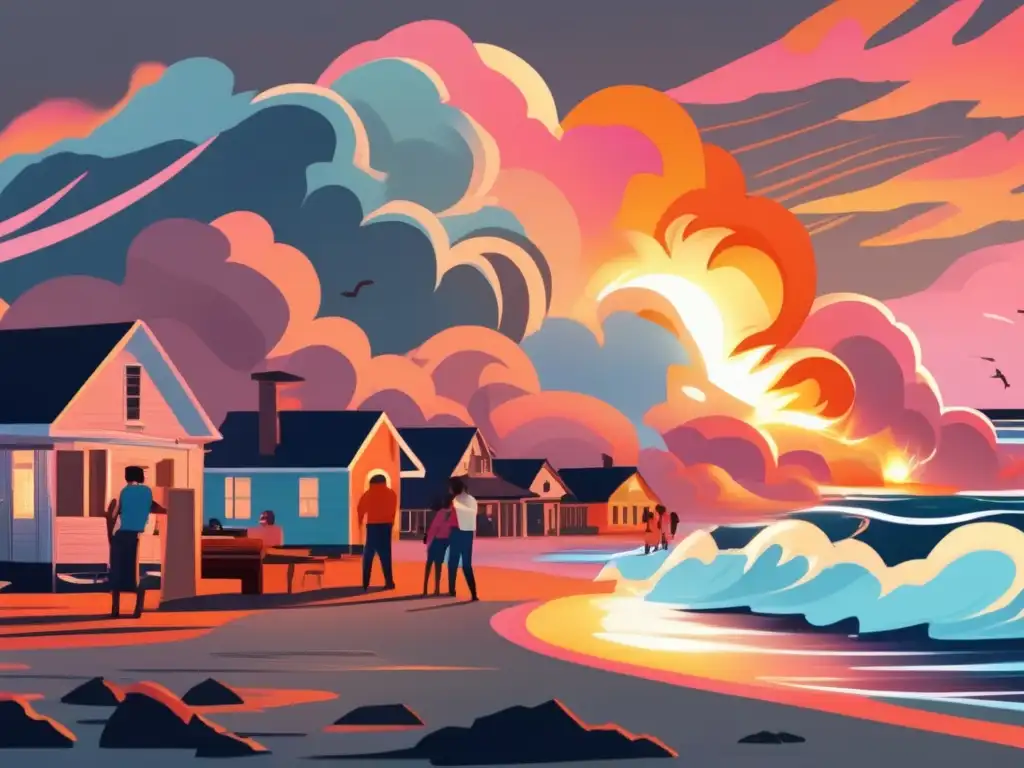
- Underground Propane Tank Safety Guidelines
- NFPA Portable and Fixed Space Heater Safety Tips
- CDC Carbon Monoxide Poisoning After a Disaster
 Flooded Vehicles: What To Do During And After A Hurricane
Flooded Vehicles: What To Do During And After A Hurricane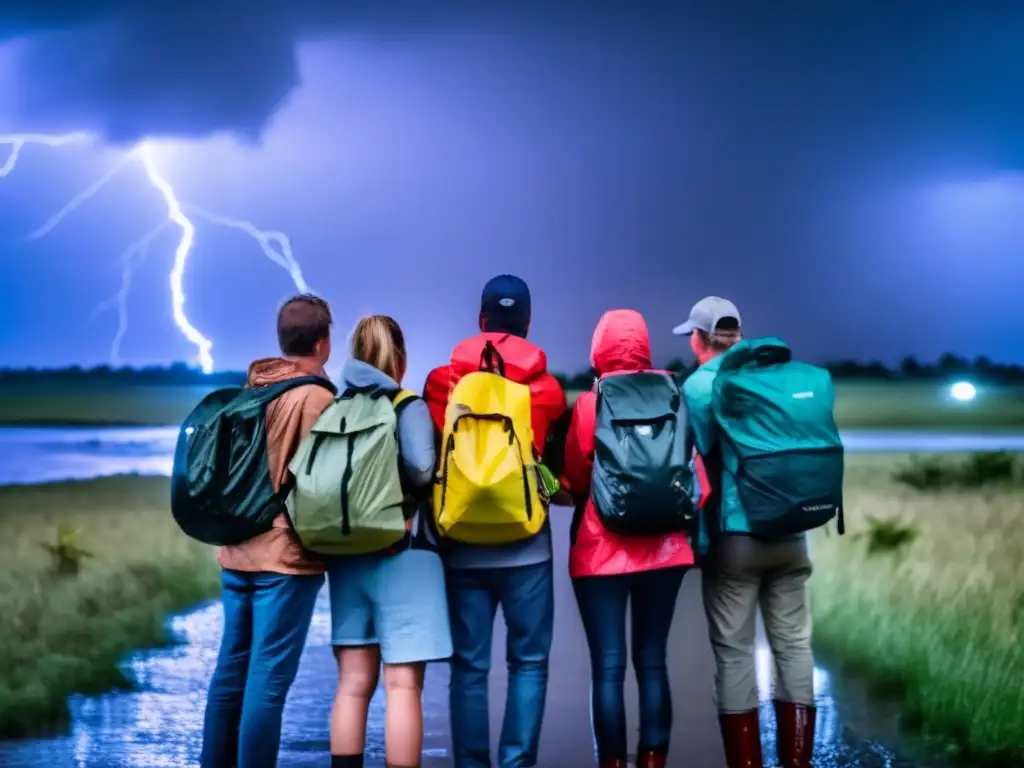 Travelers’ Safety: Handling A Hurricane In A Foreign Country
Travelers’ Safety: Handling A Hurricane In A Foreign Country Staying Afloat: Tips For Swimmers During A Hurricane
Staying Afloat: Tips For Swimmers During A HurricaneIf you want to discover more articles similar to Propane Safety During A Hurricane, you can visit the During the hurricane: category.
Leave a Reply

Articulos relacionados: